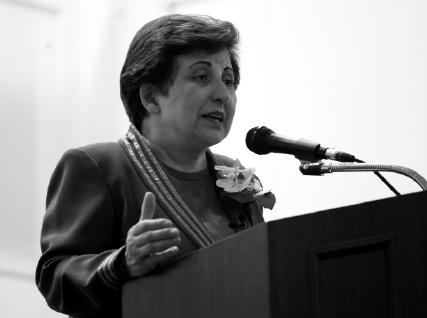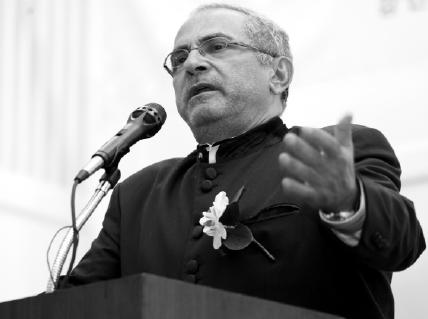

President of the Democratic Republic of Timor-Leste (East Timor) and Nobel Peace Prize laureate, Jose Ramos-Horta and and Shirin Ebadi, an Iranian human rights activist and the first Muslim woman to receive the Nobel Peace Prize, visited Ewha as part of Ewha’s World Class University project entitled “The Road to Active Peace” on Sept. 6 and Sept. 13 respectively.
The Center for Peace Studies is planning to invite two Nobel Peace Prize laureates every year to Ewha and continue its research as part of the World Class University Project, which began in December of 2009 with “The Road to Active Peace : Direct, Structural, Cultural Peace and Korea’s Role.”
President Jose Ramos-Horta
At the press conference President Jose Ramos-Horta began talking about how glad he was to visit Korea again, which shares a similar history with his country.
“East Timor was invaded and colonized for several years and 40 years ago, Korea was also as poor as our country is now,” Mr. Ramos-Horta said. “Korea has developed a lot since then and East Timor will also investigate more for development.”
President Jose Ramos-Horta also said with Korea’s history of overcoming wars and poverty, Korea should cooperate with Japan and China to maximize its capacity and ability to develop in not only Asia but also in Africa or Latin America. For the students of Ewha, he left a message that many students should visit East Timor to meet and learn about the people of the country.
“Students should come to our country either to volunteer or just for a visit to realize the hardships that people are going through,” Mr. Ramos-Horta said. “By understanding others, students can learn the practical ways to cooperate with others and find a solution for peace.”
After the press conference, Mr. Ramos-Horta gave a special lecture at the Case Hall. He talked about his vision for peace and students’ role in bringing world peace to future generations based on his experience in the independence movement of his country and working as a peace-maker in disputes around the world.
Iranina human rights activist Shirin Ebadi
Iranian Nobel Peace Prize winner Shirin Ebadi gave a special lecture under the theme “Community Building for Peace on the Korean Peninsula and Northeast Asia” at the Case Hall on Sept. 13. Ebadi was the first female to become a judge in Iranian history. However, she was demoted to the role of legal assistant under fundamental Islamist principles adopted by the new government following the Iranian Revolution of 1979. In protest, she requested early retirement and became an advocate of women and children’s rights. After being recognized for her contributions in promoting democracy and human rights, she received the Nobel Peace Prize in 2003.
At the press conference Ebadi constantly emphasized the need for peace in the Korean Peninsula; Iranian women’s rights and the current sanctions imposed on Iran by the United Nation and South Korea. During her lecture, Ebadi explained how women were discriminated in different countries in dissimilar ways. She stressed the dire need to overcome the patriarchal system, referring to it as the fundamental cause of female discrimination in society.
“Ebadi’s life shows the value of never giving up. I hope Ewha students keep her words in mind, and strive to become future female leaders like her,” said Presiden Kim Sun-uk in her welcoming address during Ebadi’s lecture.
Ebabi also said female discrimination prevailed in Korea despite a clear statement about gender equality within the state constitution.
“Social justice will eventually be achieved. Women have to secure their rights and democratic freedom,” Ebadi said.

